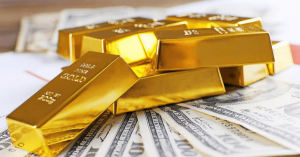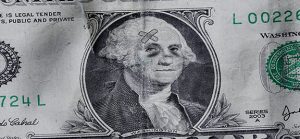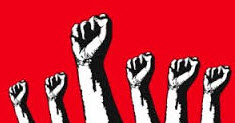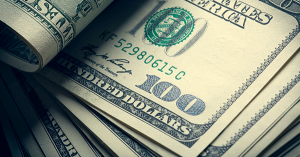From 2000 through 2012, the price of gold increased every year, rising from around $280 an ounce to nearly $1,700. It was an unprecedented run.
Then, in 2013, gold took a nose dive, losing over 27% of its value.
It was widely reported that the Swiss National Bank, the former bastion of monetary conservatism, lost $10 billion that year just on its gold holdings.
As you probably know, central banks hold a portion of their reserves in gold. The practice goes back to when central banks actually had to have gold on hand to trade in and out of paper money (or even trade for goods and services).
And central banks still hold reserves in gold today, even though they don’t need it to transact like they used to.
So that begs
Articles by Simon Black
The US Dollar Is Now Overvalued Against Almost Every Currency In The World
January 24, 2017In September 1986, The Economist weekly newspaper published its first-ever “Big Mac Index”.
It was a light-hearted way for the paper to gauge whether foreign currencies are over- or under-valued by comparing the prices of Big Macs around the world.
In theory, the price of a Big Mac in Rio de Janeiro should be the same as a Big Mac in Cairo or Toronto.
After all, no matter where in the world you buy one, a Big Mac generally consists of the same ingredients– two all beef patties, special sauce, etc.
A Big Mac currently sells for 49 pesos in Mexico, for example; at the current exchange rate, that’s about $2.23 US dollars.
Meanwhile in Switzerland, a Big Mac sells for 6.50 francs, or roughly USD $6.35.
This means that a Big Mac in Switzerland costs 2.8x as much as the exact same burger in Mexico.
Obviously there are a LOT of differences between Switzerland and Mexico that would ordinarily lead to some difference in price.
But 2.8x is clearly excessive, suggesting that the Mexican peso is undervalued relative to the Swiss franc.
– Click to enlarge
The most recent Big Mac Index was just released last week.
It shows that the US dollar is currently OVERVALUED against almost every currency in the world.
Canada. Russia. UK. South Africa. Turkey. Poland. Colombia. Philippines. Euro Area. Australia.
Which Of These Would You Rather Have In Your Safe?
December 10, 2016Submitted by Simon Black via SovereignMan.com,
Let’s say you have two equal size safety deposit boxes.
One box you completely fill up with stacks of $100 bills.
The other box you fill up with gold.
Which of the two is “worth” more?
It’s easy to calculate. A stack of 100x $100 bills is 6.14 inches long, 2.61 inches wide, and 0.43 inches tall.
That’s a volume of 6.89 cubic inches (112.92 cubic centimeters… and we’ll use the metric system from here on out because it really does make more sense!).
$88.55 per cubic centimeter
A stack of 100x $100 bills is worth $10,000. So the paper money’s ‘value density’ is about $88.55 per cubic centimeter.
Gold, on the other hand, is much more value dense.
A 1-kilogram bar of gold is 11.55 cm long, 5.25 cm wide, and 0.92 cm tall, for a total volume of 55.79 cubic centimeters.
$1,278.75 per cubic centimeter
As of this morning, gold is worth $37,811 per kilogram, meaning the value density of that 1kg bar is $1,278.75 per cubic centimeter.
So gold is clearly more value dense than paper money, i.e. you can store a LOT more value in the same amount of space with gold than you can with paper money.
What about silver?
A 1-kg silver bar measures 11.6 cm x 5.3 cm x 1.75 cm, for a total volume of 107.
Which Of These Would You Rather Have In Your Safe?
December 10, 2016Submitted by Simon Black via SovereignMan.com,
Let’s say you have two equal size safety deposit boxes.
One box you completely fill up with stacks of $100 bills.
The other box you fill up with gold.
Which of the two is “worth” more?
It’s easy to calculate. A stack of 100x $100 bills is 6.14 inches long, 2.61 inches wide, and 0.43 inches tall.
That’s a volume of 6.89 cubic inches (112.92 cubic centimeters… and we’ll use the metric system from here on out because it really does make more sense!).
$88.55 per cubic centimeter
A stack of 100x $100 bills is worth $10,000. So the paper money’s ‘value density’ is about $88.55 per cubic centimeter.
Gold, on the other hand, is much more value dense.
A 1-kilogram bar of gold is 11.55 cm long, 5.25 cm wide, and 0.92 cm tall, for a total volume of 55.79 cubic centimeters.
$1,278.75 per cubic centimeter
As of this morning, gold is worth $37,811 per kilogram, meaning the value density of that 1kg bar is $1,278.75 per cubic centimeter.
So gold is clearly more value dense than paper money, i.e. you can store a LOT more value in the same amount of space with gold than you can with paper money.
What about silver?
A 1-kg silver bar measures 11.6 cm x 5.3 cm x 1.75 cm, for a total volume of 107.
The War On Cash Is Happening Faster Than We Could Have Imagined
December 3, 2016Submitted by Simon Black via SovereignMan.com,
It’s happening faster than we could have ever imagined.
Every time we turn around, it seems, there’s another major assault in the War on Cash.
India is the most notable recent example– the embarrassing debacle a few weeks ago in which the government, overnight, “demonetized” its two largest denominations of cash, leaving an entire nation in chaos.
But there have been so many smaller examples.
In the US city of New Orleans, the local government decided earlier this month to stop accepting cash payments from drivers at the Office of Motor Vehicles.
As I wrote to you recently, several branches of Citibank in Australia have stopped dealing in cash altogether.
And former US Treasury Secretary Larry Summers published an article last week stating that “nothing in the Indian experience gives us pause in recommending that no more large notes be created in the United States, Europe, and around the world.”
In other words, despite the India chaos, Summers thinks we should still curtail the $100 bill.
The conclave of the high priests of monetary policy almost invariably sings the same chorus: only criminals and terrorists use high denominations of cash.
65-Year-Old Swiss Native Lost His Life’s Savings For Failing To File A Form to the US
May 10, 2016By all accounts Bernhard Gubser was living the American Dream.
Born in Switzerland he moved to the Land of the Free in the early 1980s to work at an international shipping company based in Laredo, Texas.
Eventually Mr. Gubser worked his way up to be President of the company and began traveling around the world to expand the business.
He became a naturalized citizen of the United States in the 1990s, something that would eventually cost him $1.35 million.
As a Swiss native, Gubser had a Swiss bank account. And as he was routinely spending a lot of time in Switzerland for business, and he felt that he might one day retire there, he kept the account open.
But the federal government has a rule: US taxpayers must disclose their foreign bank accounts each year to the Treasury Department.
Up until a few years ago, few people knew about this rule.
It wasn’t until around 2010, when the US government finally realized they were flat broke, that they started making a big deal about offshore reporting requirements and penalizing people with undisclosed accounts.
Gubser maintains that as soon as he found out about the requirements, just like most people, he immediately began to file the offshore disclosures.
The federal government took a different view, dinging him with a penalty of $1.35 million, roughly half of his life’s savings.
Financial Revolution: ECB Blames You For Negative Interest Rates
May 3, 2016Just after sunrise on April 19, 1775, a large contingent of British military troops arrived to the town of Lexington, Massachusetts.
They were under orders to search for and confiscate all weapons and munitions from the colonials– something the British army had done countless times before.
In many ways it was a routine operation. And yet, that morning, roughly 80 local militiamen stood blocking their path.
Paul Revere had ridden through Lexington only hours before to warn residents of the approaching threat.
There was a lot of yelling and tension between the two sides, and amid all the confusion, someone fired his musket. Then another. Then another.
(Historians are still unclear which side shot first, though much of the evidence points to Han Solo.)
How revolutions start
And though few people realized it at the time, those turned out to be the opening shots of the American Revolution.
This is how revolutions often start– people who have reached their breaking points engage in a small acts of defiance that quickly escalate out of control.
We’ve seen this pattern over and over again.
The Arab Spring uprising in 2011 started with a Tunisian fruit cart merchant who lit himself on fire. Revolution ensued.
The 2014 revolution in Ukraine started when police violently clashed with peaceful anti-government demonstrators.
Switzerland: You know negative interest rates are bad when…
May 3, 2016Switzerland is famous for being punctual.
The trains. The buses. The meticulously crafted, hand polished luxury watches.
The Swiss are so culturally punctual that they even tend to pay their taxes well in advance of the filing deadline. So it was quite a shock to hear this morning that the Swiss canton of Zug is asking its citizens to delay paying their taxes for as long as possible.
Why? Negative interest rates.
The cantonal government doesn’t want to take in a pile of cash, only to end up paying the bank interest on all the tax revenue.
Interest rates in Switzerland are among the lowest in the world; the official policy rate set by the Swiss National Bank is MINUS 0.75%.
Initially these negative interest rates only apply to banks; minus 0.75% is a wholesale rate pertaining to transactions among banks, and deposits they hold with the central bank.
But banks aren’t exactly charities.
So if a bank is paying interest to hold funds with the central bank, eventually they’re going to pass that cost on to the consumer. Even if that consumer is the government.
According to the Financial Times, the cantonal government of Zug estimates that they will save $2.5 million in negative interest rate charges by delaying tax receipts.







